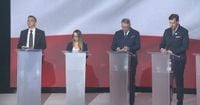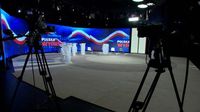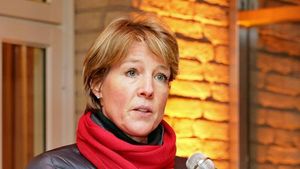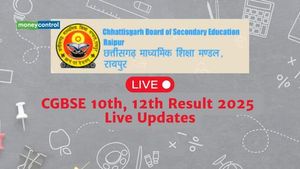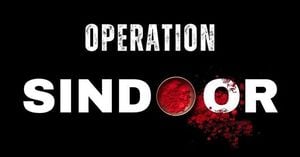On May 5, 2025, at 20:00, Polsat News hosted a much-anticipated debate featuring representatives from nearly all presidential candidates ahead of the upcoming elections in just 12 days. This debate is designed to provide a comprehensive view of the political landscape as candidates discuss pressing issues such as national security, foreign policy, and domestic policy.
The event was moderated by Piotr Witwicki, the director of the Information and Public Affairs Division of Polsat Television and the editor-in-chief of Interia. Witwicki emphasized the importance of the debate, stating, "The debate is an opportunity to see how the staffs representing the most significant contenders for the highest office in the country present their visions for Poland." He also noted that not all campaign staffs were invited, particularly Maciej Maciak's team, due to his controversial admiration for Russian President Vladimir Putin. "If someone wants to listen to Maciak's campaign, they can switch to Russia Today," Witwicki remarked.
Among the participants were Monika Rosa, representing Rafał Trzaskowski's campaign. Rosa is a member of parliament who focuses on youth issues and social policy, and her selection aims to highlight Trzaskowski's liberal stance, particularly on abortion rights, appealing to young voters and women who could significantly influence the election outcome.
Adrian Zandberg's campaign was represented by Marcelina Zawisza, another MP known for her vocal criticism of recent healthcare funding cuts. Zawisza's participation reflects the left's commitment to addressing social welfare issues. Representing Magdalena Biejat's campaign was Anna Górska, a senator and head of Biejat's campaign team, who has been active in advocating for women's rights and social justice.
Karol Nawrocki's campaign featured Tobiasz Bocheński, a Member of the European Parliament with experience running against Trzaskowski in the past. Bocheński's calm demeanor is seen as a strategic choice to attract undecided voters, particularly in light of ongoing discussions regarding Nawrocki's housing policies.
Paweł Śliz, the chairman of the Poland 2050 parliamentary club, represented Szymon Hołownia's campaign. Śliz, a popular figure known for his role in the Pegasus inquiry, is expected to maintain Hołownia's vibrant and engaging communication style. Meanwhile, Przemysław Wipler represented Sławomir Mentzen, a key figure in the Confederation party, which has been increasingly vocal about its business-friendly policies.
Other participants included Marcin Bartoszewicz for Artur Bartoszewicz, Paweł Frankiewicz for Marek Woch, Piotr Bakun for Joanna Senyszyn, and Marta Czech representing Grzegorz Braun. Jarosław Sachajko stood in for Marek Jakubiak, rounding out a diverse lineup of political representatives.
The debate was structured in several stages. Initially, participants responded to questions from Witwicki covering three critical areas: national security, foreign policy, and domestic policy. Following this, there was a dynamic round of mutual questions, allowing campaign staffs to confront each other's positions directly.
Witwicki explained the debate format, highlighting that a draw would determine the order of responses to questions posed by the moderator, the sequence of mutual questions, and the timing of free speech segments. This structure is designed to encourage lively and informative exchanges among the candidates' representatives.
As the debate unfolded, it became evident that the stakes were high, with each participant aiming to showcase their candidate's strengths while addressing the weaknesses of their opponents. The discussions were not only about policies but also about the candidates' visions for Poland's future, making it a crucial moment in the lead-up to the elections.
The debate was broadcast live on Polsat News, Polsat News Politics, and streamed on major news platforms, ensuring widespread access for voters eager to understand the candidates' positions. As the political landscape continues to evolve, this debate serves as a pivotal moment for the candidates to connect with the electorate and articulate their plans for the nation.
In light of the ongoing political discourse in Poland, the debate can be seen as a microcosm of the larger electoral battle, reflecting the diverse range of opinions and strategies emerging as candidates vie for the presidency. With the election just around the corner, voters are keenly watching how these representatives articulate their candidates' platforms and respond to each other's critiques.
The debate is expected to resonate with voters, particularly those concerned about national security and Poland's role on the global stage. As the candidates' representatives engage with each other, they will not only influence public perception but also shape the narrative leading into the final days of the campaign.
